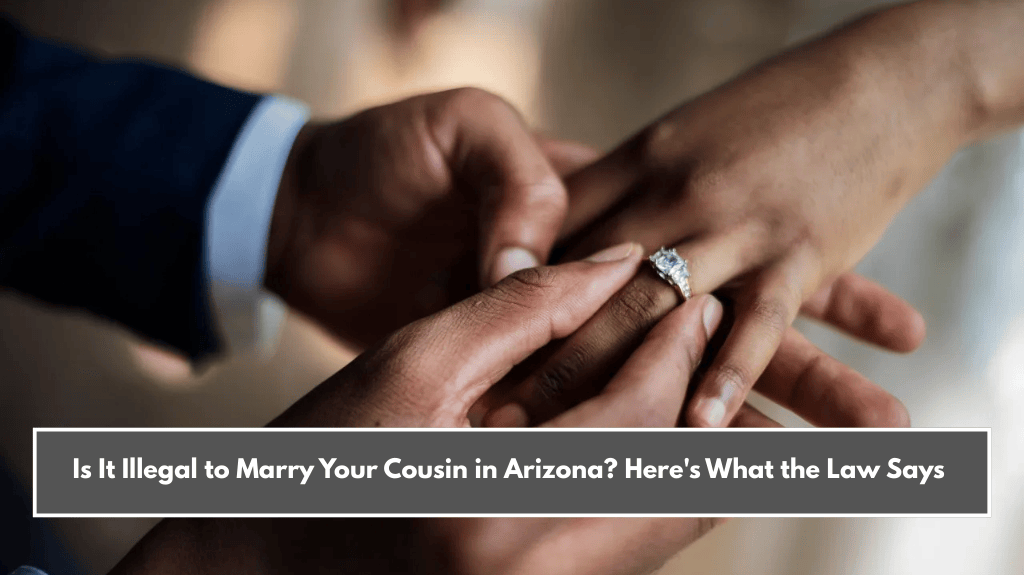In Arizona, marrying your first cousin is generally prohibited under the state’s marriage laws. However, there are specific exceptions that allow such marriages under certain conditions.
General Prohibition of First Cousin Marriages
Arizona Revised Statutes Section 25-101 explicitly states that marriages between first cousins are prohibited and void. This prohibition extends to other close familial relationships, such as parents and children, siblings, and uncles or aunts with nieces or nephews.
Exceptions Allowing First Cousin Marriages
Despite the general ban, Arizona law provides two exceptions where first cousins may legally marry:
- Age Exception: First cousins can marry if both individuals are 65 years of age or older. In this case, no additional requirements need to be fulfilled.
- Infertility Exception: If one or both first cousins are under the age of 65, they may marry only if they obtain approval from a superior court judge. To secure approval, they must present proof that one of the cousins is sterile and incapable of reproducing.
These exceptions reflect concerns about potential genetic risks associated with offspring from first cousin unions. Arizona’s approach focuses on mitigating these risks by either ensuring infertility or restricting reproduction due to advanced age.
Legal Process for Court Approval
For first cousins under 65 seeking marriage through the infertility exception:
- They must petition a superior court in Arizona.
- Evidence proving sterility must be presented to the judge.
- Upon judicial approval, they can proceed with obtaining a marriage license and solemnizing their marriage.
Other Cousin Relationships
Marriages between more distant relatives, such as second cousins or first cousins once removed, are allowed without restrictions in Arizona. These relationships are not considered close enough to warrant legal prohibition.
Comparison with Other States
Arizona’s stance on cousin marriage is relatively restrictive compared to states like California and New Mexico, where first cousin marriages are fully legal. However, it is less restrictive than states where such marriages are entirely criminalized (e.g., Texas and Nevada)
Implications of Void Marriages
If a prohibited marriage occurs without meeting the legal exceptions, it is considered void. A void marriage holds no legal validity and may be annulled through court proceedings. This nullifies the union as though it never occurred.
While marrying your first cousin in Arizona is generally illegal, exceptions exist for couples over 65 or those who can prove infertility through court approval. Couples considering such unions should carefully review legal requirements and consult an attorney to navigate the process effectively.
Sources:
- https://www.arizonalawgroup.com/arizona-family-law-statutes/ars-25-101-void-and-prohibited-marriages/
- https://www.arizonalawgroup.com/arizona-divorce/about-marriage-in-arizona/
- https://divorcemediationtucson.com/family-law/marriage-law-basics-legal-requirements-and-implications/
- https://theamm.org/marriage-laws/arizona/288
- https://dataminingdna.com/can-first-cousins-marry-in-arizona/















